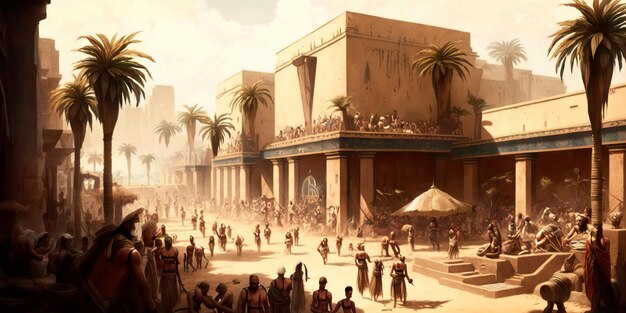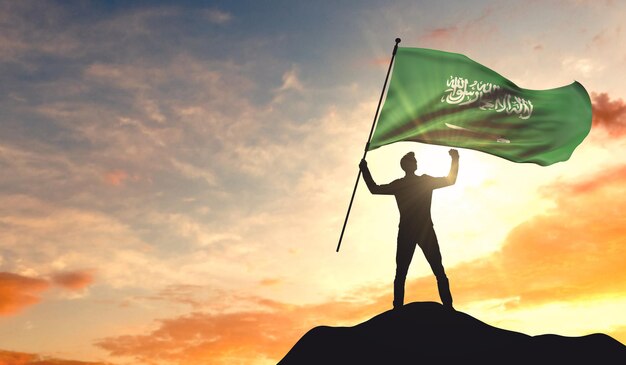
Introduction about History of Saudi Arabia
This article is mainly about the history of Saudi Arabia. Saudi Arabia, a land steeped in history and tradition, boasts a rich tapestry of legends and legacies that have shaped its identity over the centuries. From as early as 3,000 BCE, the nomadic Bedouins thrived along the Arabian Peninsula, engaging in flourishing trade. In the 7th century CE, the arrival of Prophet Muhammad brought about a new era with the establishment of the first Islamic state in Medina in 622 CE. Subsequently, the region witnessed a glorious period of Islamic civilization, contributing significantly to knowledge and arts from the 8th to the 14th centuries CE.
Pre-Islamic Era: Bedouin Tribes and Trade Routes:
Before the dawn of Islam, the Arabian Peninsula was home to nomadic Bedouin tribes, whose way of life dates back to around 3,000 BCE. Flourishing trade routes linked the region to various corners of the world, with trade activities flourishing around 1,000 BCE.

The Advent of Islam: Rise of a New Era:
The 7th century CE marked a turning point for Saudi Arabia with the advent of Islam, spearheaded by the teachings of Prophet Muhammad. In 622 CE, the first Islamic state was established in Medina, setting the foundation for a new era of profound spiritual and societal change.
The Golden Age of Islamic Civilization:
Saudi Arabia played a pivotal role in nurturing the Islamic Golden Age. Between the 8th and 14th centuries CE, scholars flocked to centers of learning like Mecca and Medina, contributing significantly to various fields of knowledge, including mathematics, medicine, and astronomy. The architectural wonders of mosques and palaces also adorned the land during this period, leaving behind a lasting legacy.
The Age of Empires: Ottomans and Saudis:
The 17th to 19th centuries CE saw the struggle for power between the Ottoman Empire and the Saudi dynasty. The 1744 CE marked the rise of the first Saudi state, which would later shape the destiny of the Arabian Peninsula.
Lawrence of Arabia: World War I and Beyond:
The First World War witnessed the entry of T.E. Lawrence, known as Lawrence of Arabia, into the Arabian theater. From 1916 to 1918 CE, he played a pivotal role in the Arab Revolt, leading to significant geopolitical developments in the region.
The Discovery of Oil: Transformation and Modernization:
The early 20th century brought a transformational period with the discovery of oil reserves in Saudi Arabia. The 1930s saw the newfound wealth leading to rapid modernization, driving economic and social changes within the country.
Unification of the Kingdom: Abdul Aziz Al Saud:
In 1932 CE, King Abdul Aziz succeeded in unifying the various regions into one cohesive kingdom, forming the modern Kingdom of Saudi Arabia. His visionary leadership and determination have left an enduring legacy that continues to shape the nation’s course.
Saudi Arabia on the Global Stage:
Over the course of the 20th and 21st centuries, Saudi Arabia emerged as a significant player in international politics and diplomacy. The kingdom’s strategic location, coupled with its substantial oil reserves, has placed it at the forefront of global geopolitics, solidifying its influence in the Arab world.
The Era of Vision 2030: Shaping the Future:
In 2016, Saudi Arabia launched Vision 2030, a transformative roadmap for the nation’s future. The vision focuses on diversifying the economy, empowering the youth, and promoting a more inclusive society, envisioning a prosperous and sustainable future for the kingdom.

Cultural Heritage and Traditions:
Saudi Arabia takes immense pride in preserving its cultural heritage through vibrant festivals, traditional art forms, and culinary delights. These cultural expressions form an essential part of the nation’s identity, bridging the gap between its storied past and a promising future.
Women Empowerment: A Progressive Path:
In recent years, Saudi Arabia has made significant strides in empowering women, granting them more opportunities in education, employment, and public life. The evolving role of women reflects the nation’s commitment to progress and equality, marking a progressive path for gender equality.
Tourism Potential: Exploring Hidden Gems:
Beyond its gleaming cities, Saudi Arabia is home to breathtaking landscapes and historical treasures. From the ancient city of Diriyah to the stunning Red Sea coast, the nation beckons tourists with its undiscovered wonders. Present-day travelers have the opportunity to explore these hidden gems and contribute to the growth of Saudi Arabia’s tourism sector.
Challenges and Opportunities:
Like any nation, Saudi Arabia faces ongoing challenges. However, the nation is poised to capitalize on its potential for future growth and development. By leveraging its rich history, abundant resources, and visionary strategies, Saudi Arabia aims to overcome hurdles and emerge as a regional leader on the global stage.
Conclusion:
In conclusion, the history of Saudi Arabia is a treasure trove of legends and legacies that resonate through time. Embracing its past while envisioning the future through Vision 2030, the nation stands at the threshold of greatness, poised to leave an indelible mark on the world stage.
FAQs (Frequently Asked Questions)
- What are some famous historical landmarks in Saudi Arabia?
- From the ancient Nabatean city of Al-Ula to the towering Masmak Fortress in Riyadh, Saudi Arabia boasts numerous historical landmarks dating back to different periods.
- What is the significance of Mecca and Medina in Islamic history?
- Mecca and Medina hold profound religious significance as the birthplace of Islam and the final resting place of the Prophet Muhammad, dating back to the 7th century CE.
- How has Vision 2030 impacted Saudi Arabia’s economy?
- Vision 2030, launched in 2016, has led to diversification efforts, attracting foreign investments, and reducing the kingdom’s reliance on oil revenues.
- How has Saudi Arabia embraced sustainable development?
- Saudi Arabia has launched several initiatives promoting environmental conservation, renewable energy, and sustainable practices, reflecting its commitment to sustainable development in the present day.
- What role do women play in Saudi Arabian society today?
- Women in Saudi Arabia now participate actively in various fields, including education, business, and politics, reflecting a progressive path towards gender equality in recent years














